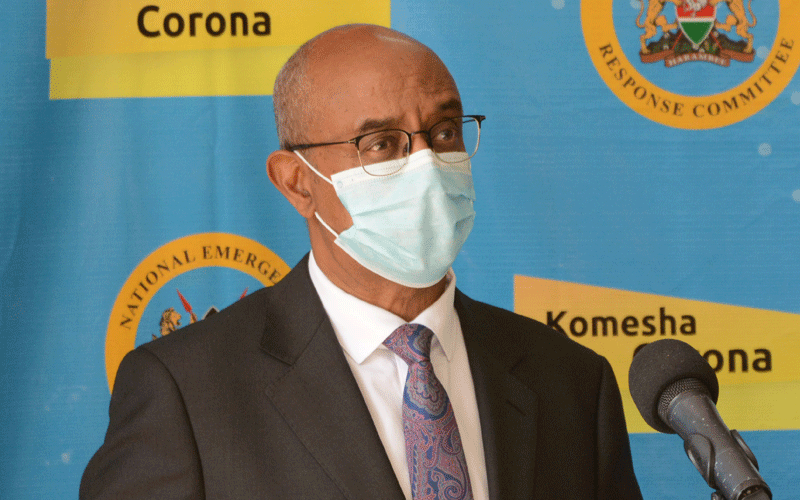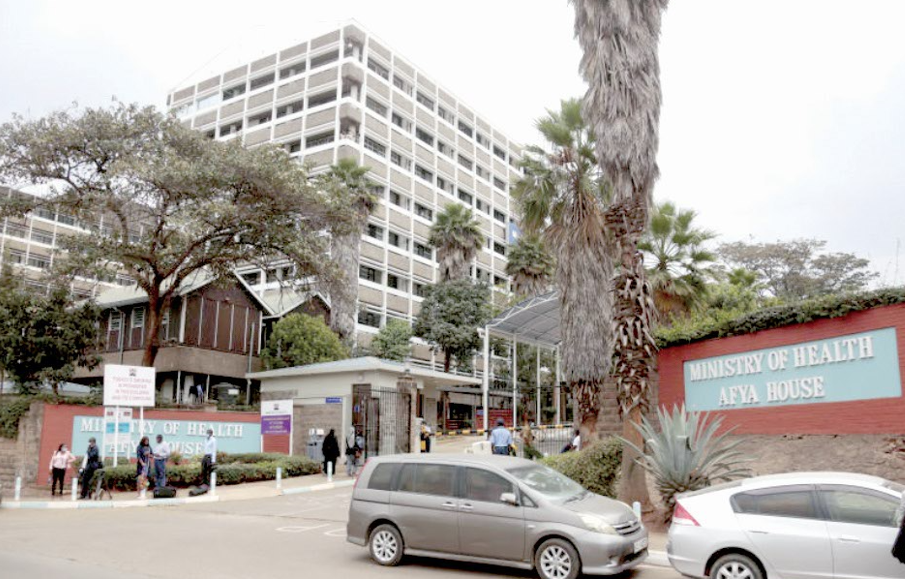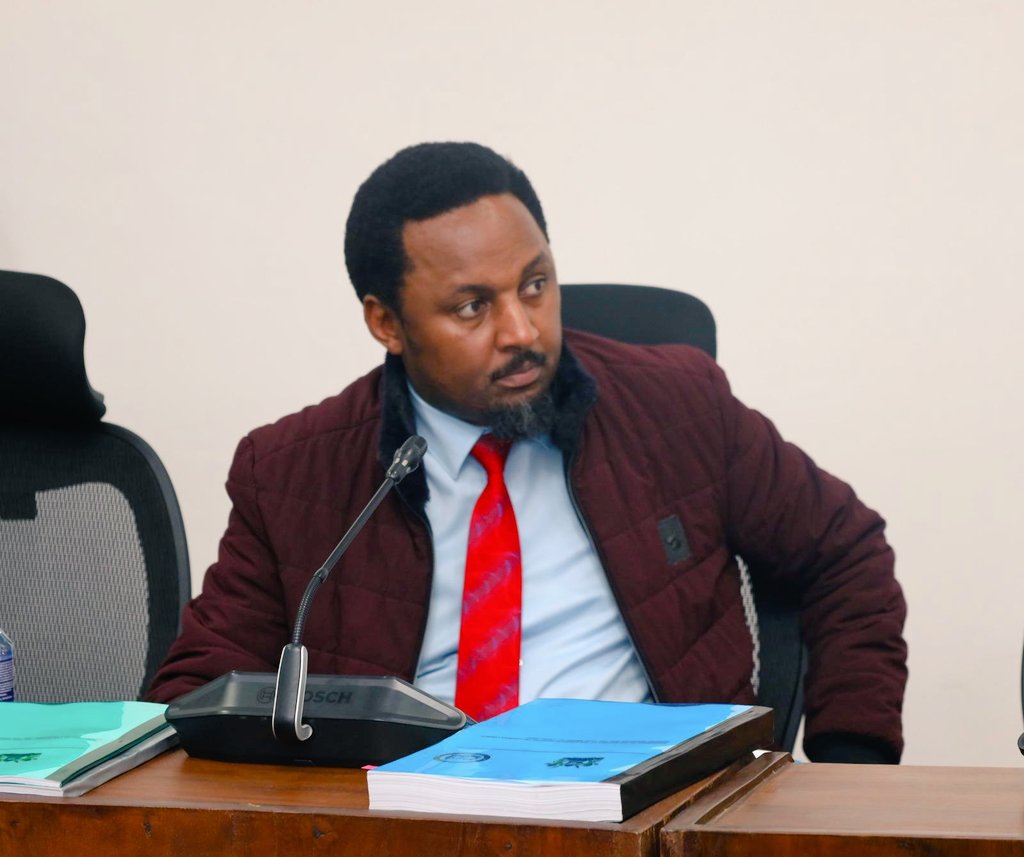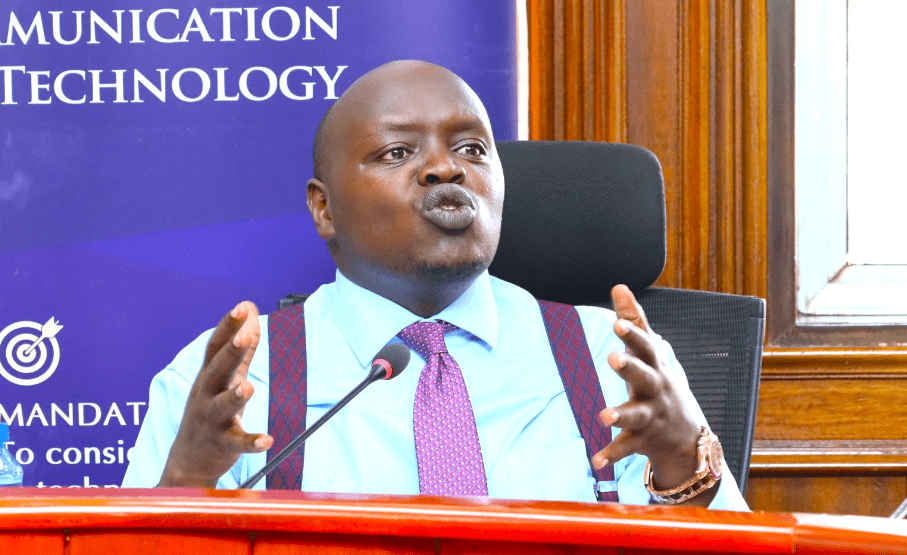Coronavirus lays bare frailty of public health system

The Coronavirus disease has taught Kenya fundamental lessons that will come in handy in battling similar pandemics and other community-based ailments in future, the Ministry of Health acknowledged yesterday.
Speaking during the ministry’s daily briefing on Covid-19 situation yesterday, Ministry of Health Chief Administrative Secretary (CAS) Rashid Aman observed that the country will need to continue building its health capacities
“It is a matter of concern and we should all be concerned and the more a reason it should be able to motivate us to strengthen our systems even further because we know Covid-19 is not going to be the last pandemic that we shall face,” he said.
Responding to reports of a new type of Swine Flu in China that is capable of triggering another pandemic, CAS Aman said that although the information needed to be verified by authorities, it remained a matter of great concern globally.
“We will witness other pandemics in the future of unknown nature, but we must build our health systems; our health systems must be resilient and be able to cope with any disease or pandemic that might come up in the future,” the CAS said.
“I think Covid-19 is teaching the entire world that it is all about having robust health systems that can cope with any eventuality… that is, if a pandemic was to break,” he added.
County governments are currently working round the clock to meet President Uhuru Kenyatta’s directive of 300-bed isolation in each of the 47 devolved units to enable the country combat the virus properly in case of a surge in infections.
The Covid-19 originated from Wuhan Province in China in December last year before spreading like bushfire across the globe—leaving death and devastation in its wake. By yesterday afternoon, the number of infections—globally—was around 10.5 million.
The number of deaths stood at slightly over 500, 000 with the US being the epicenter after reporting over 2.6 million infections and 129,000 fatalities since the first case was detected in mid-January.
Locally, the Government has put in place measures and protocols to curb the spread of the deadly virus which attacks the respiratory organs and lungs in particular; these include containment measures such quarantine and isolation of infected persons.
Work from home
Other measures include hand washing, wearing of face masks, keeping social distance and a ban on public gatherings and prohibition of travel in and out of Nairobi, and Mombasa which have become the epicenter of community infections.
Recently, the Government launched Home-Based Care and Protocols as the number of infections kept increasing, threatening to overrun the country’s health facilities.
It was informed by the realisation that about 80 per cent of patients are asymptomatic, which means that although they are positive, they don’t develop symptoms associated with the disease such as coughing and fever.
The Government has also directed people aged 60 and above to work from home and those with preexisting ailments as well as other vulnerable groups to exercise extra caution because studies have shown that they are more susceptible to Coronavirus.
Figures provided by the Ministry of Health indicate that diabetes, hypertension, asthma cancer, HIV/Aids and tuberculosis are leading cause of death in Coronavirus patients.
It is for this reason that the Ministry of Health yesterday described the launching of two important policy documents that will guide efforts towards ending TB in the country as a milestone.
Tuberculosis is said to be the fifth cause of deaths in the country at the moment.
“In 2019, we reported and treated 86,504 cases of TB, of which approximately 10 per cent are children,” he said, adding: “Drug resistant TB cases have been on the rise with 688 such cases in the country as of 2019.”
One of the policy documents we are launching today speaks to the rollout of a regiment for treatment of MDR-TB (Multi-Drug resistant TB) that is devoid of injections in line with WHO’s call to eliminate injections in order to improve treatment outcomes, said Aman.
“The second policy addresses preventive treatment of latent TB infection offered to individuals at risk of developing active TB.
Preventive treatment has proven to be an effective intervention to crucial development of active TB disease,” he added.










